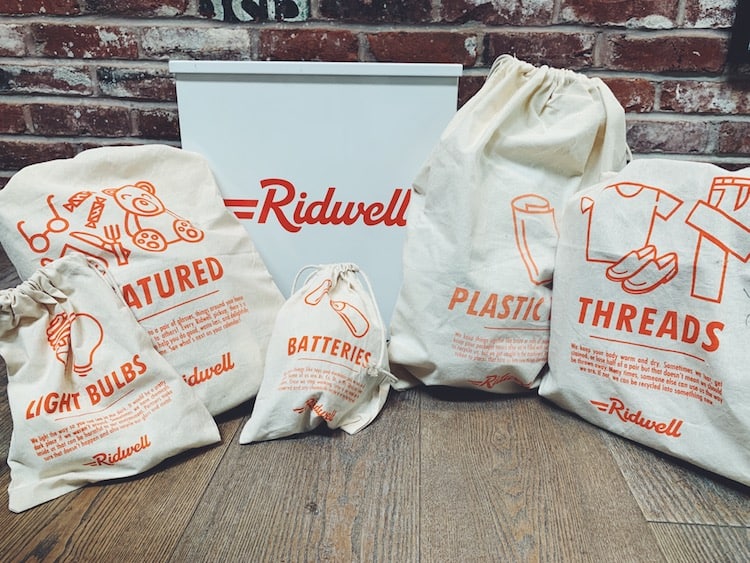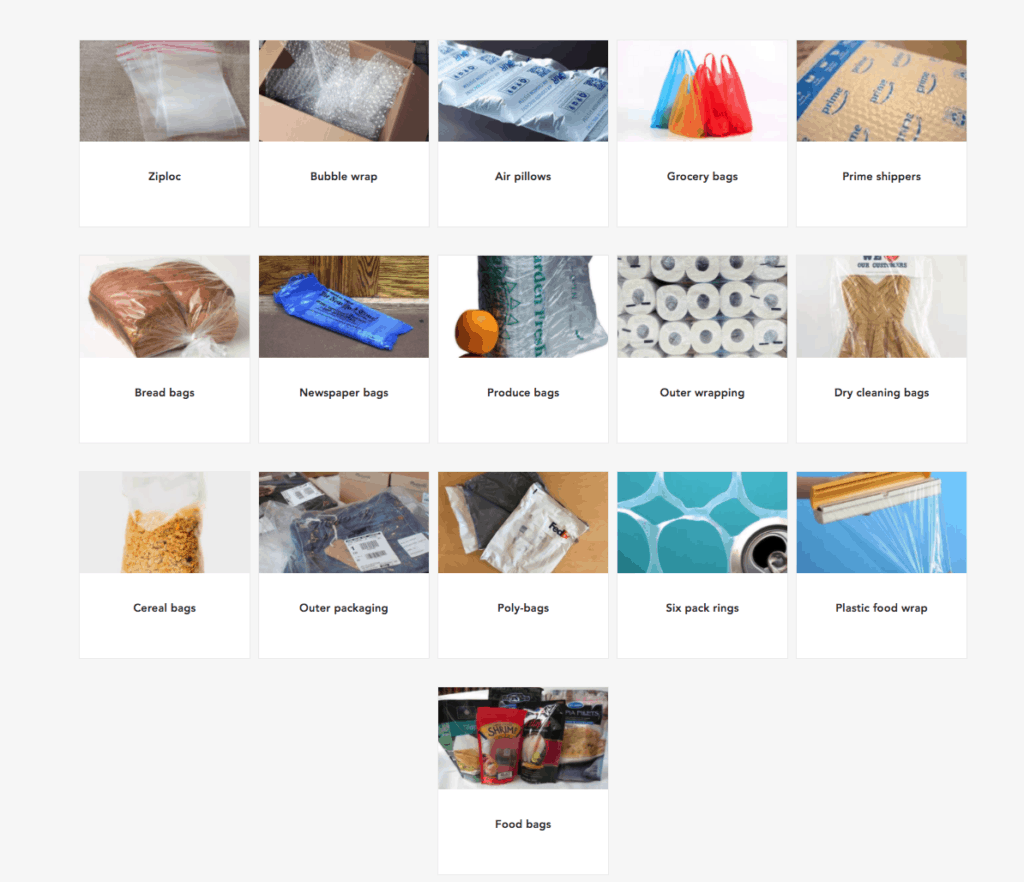Next-level recycling is hard. We all have piles of metallic-smelling dead batteries slowly corroding in the back of the closet, but actually getting those batteries to a recycling center feels like a Herculean effort, right up there with taking a return to the post office. Enter Ridwell, a company that will pick up recyclables from your front door — you don’t even have to take it to the curb — and keep them out of the landfill (or your closet).

How it Works
Every two weeks, Ridwell will collect your batteries, light bulbs, plastic film (basically any plastic that can be “scrunched”), and clothing, plus one rotating category of items. Their handy website tells you exactly what can and can’t go in the bin, with photos. If you have questions, simply text them and you’ll get a cheerful response from a Ridwell team member. I had a question about Roomba batteries, and to my delight they said they would take them, and if they didn’t fit in the batteries bag, I could put them in a bag of my own, as long as it fit in the bin. All of your items go in attractively labeled cloth drawstring bags, which are replaced with fresh bags at every pick up. For an extra fee, Ridwell will even take your styrofoam (there’s a giant bag for that), and if you have more regular items than will fit in your bin, you can pay a small fee for “beyond the bin” bags.

Ridwell doesn’t just recycle – they also reuse. About 45% of the clothing they receive is given new life as secondhand clothing for neighbors in need, and the rest is recycled; plus, they do the sorting for you. Many of their rotating categories are for items to reuse, not recycle.
Ridwell periodically adds new categories for an additional fee; the latest additions are fluorescent bulbs and clamshells. The blue bag for clamshells provides ample room (especially if you nest them), and they can take any clear plastic labeled No. 1, even if it isn’t a clamshell shape. They currently only charge a dollar to pick up the large bag. As it will take our family many weeks to fill it completely full, the price feels very reasonable. The fluorescent bulb transport is pricier, and you pay per bulb (currently $4.00 each), but they are trickier to handle than a bag of plastic. I’m hanging on to my fluorescents until either the price goes down or I talk myself into driving them to the recycling center myself. Ridwell, to their credit, provides the address on their website in case you, too, would rather forgo the fluorescent bulb fee and drive them yourself.
The rotating category is where the magic is. Ridwell partners with local nonprofits, recyclers and artists, to collect a specific new category each pick-up. The category could be diapers for PDX Diaper Bank, books for The Children’s Book Bank, or corks for the Cork Forest Conservation Alliance. Members of my local Buy Nothing group have connected over Ridwell, asking for rotating category items to donate, or offering space in their bin for neighbors’ batteries. The rotating categories make recycling fun, and make decluttering and donating a regular part of your schedule, no trip to Goodwill required.
Is it Worth the Cost?
When I was pitching Ridwell to my spouse, I speculated that we might even be able to reduce the size of our city garbage can to make up the $12/month fee for Ridwell. He was cheerfully skeptical that a knee-high Ridwell bin could significantly reduce our garbage, but a month in and we’ve rolled out a half-full garbage bin twice. I credit the Mary Poppins-like quality of the plastic film bag. It doesn’t matter how full it is, I can always squeeze in another Amazon package. And even if we never get around to calling the city to exchange our landfill bin, I think of the Ridwell fee as an investment in the planet, a small, easy way to make a difference. How many things in life are both convenient and good for the planet?
That said, $12/month plus extra fees for styrofoam and extra bags does add up over time. If you want to try it out before committing (to get the lowest price of $12/month, you pay for a year in advance), a neighbor or friend who is already “ridding well” can send you a free trial. Or if you don’t generate enough waste to fill the bin every pickup, you might consider sharing one with a neighbor and splitting the cost. If a monthly fee just isn’t in the budget, utilize your local Buy Nothing or other neighborhood group; someone will probably have room for your batteries or lightbulbs in their bin.
Convinced?
Ridwell works because it’s oh-so-easy and surprisingly fun. If you’re ready to sign up, go to Ridwell.com, and they’ll deliver a bin to your door. The only thing you have to do is teach your family the difference between plastic film and scrunchable metal. So, okay, it’s not completely effortless. But it’s close.
- This Weekend in PDX - April 25, 2024
- This Ultimate Outdoor Adventure is 10/10 - April 22, 2024
- We Found Your Next Ultimate Outdoor Adventure - April 22, 2024





